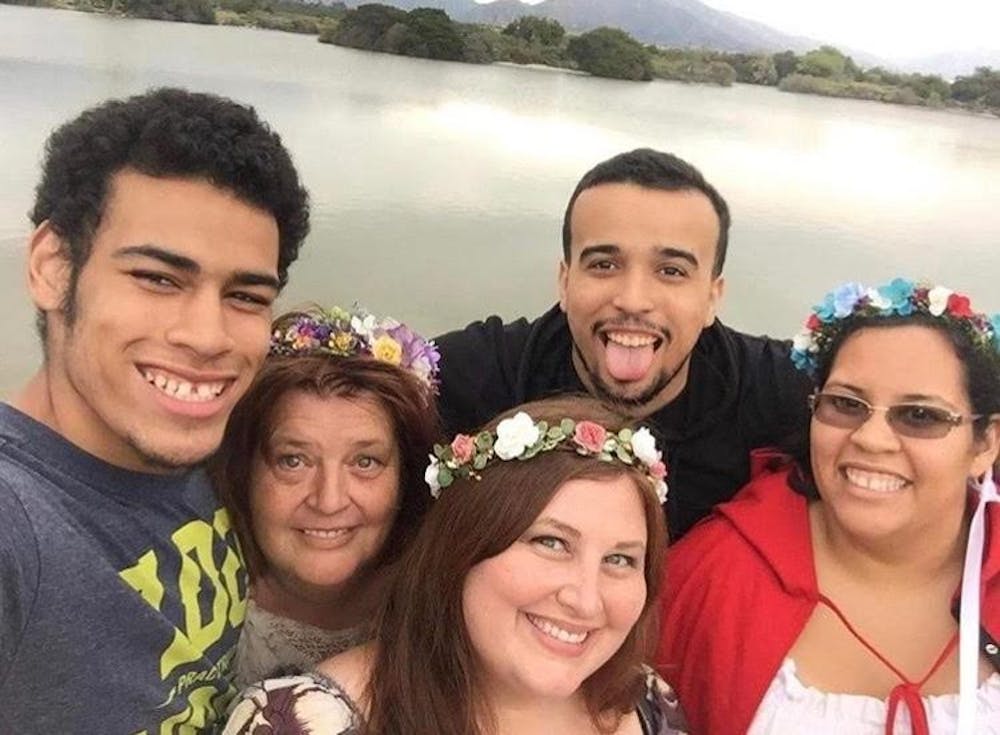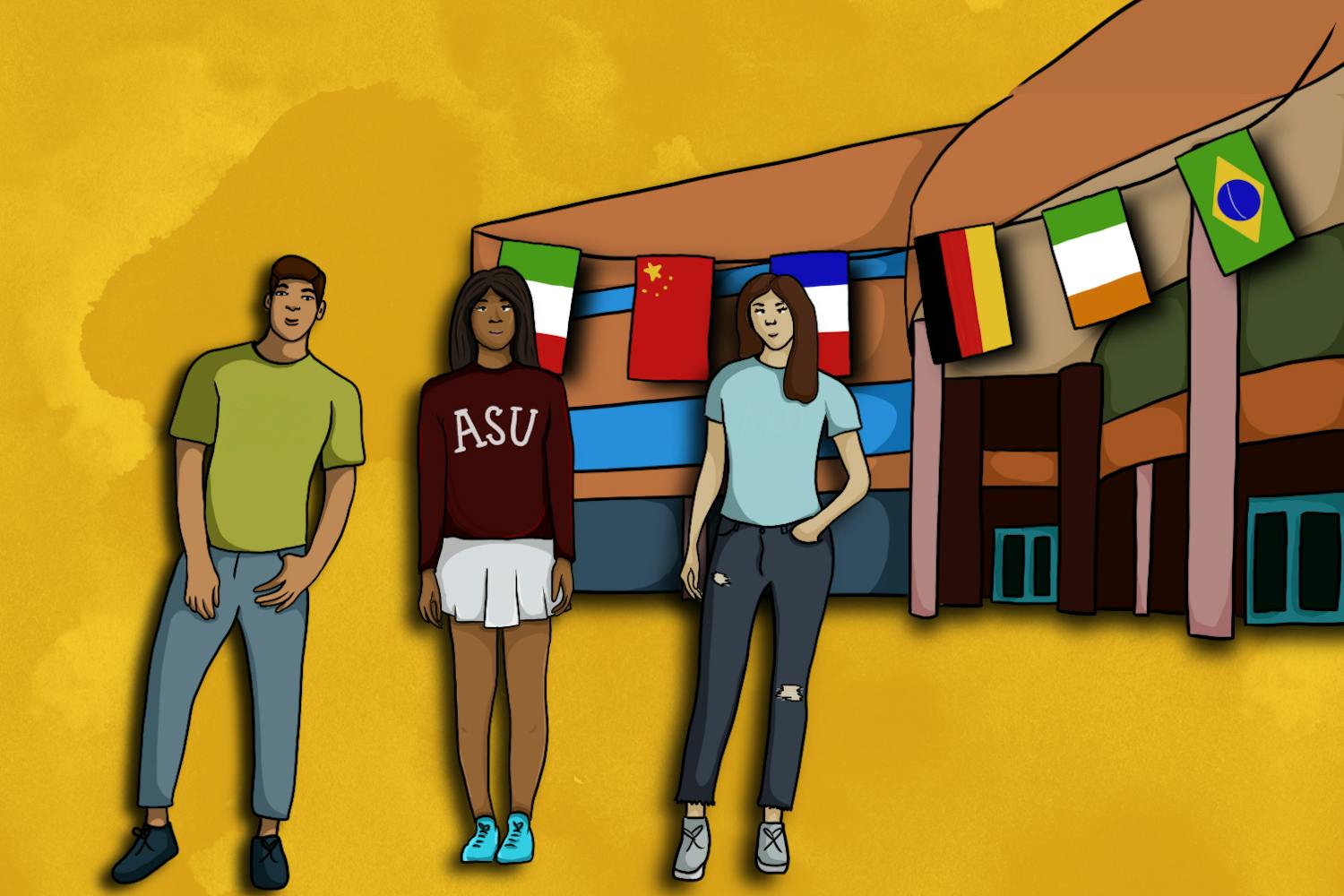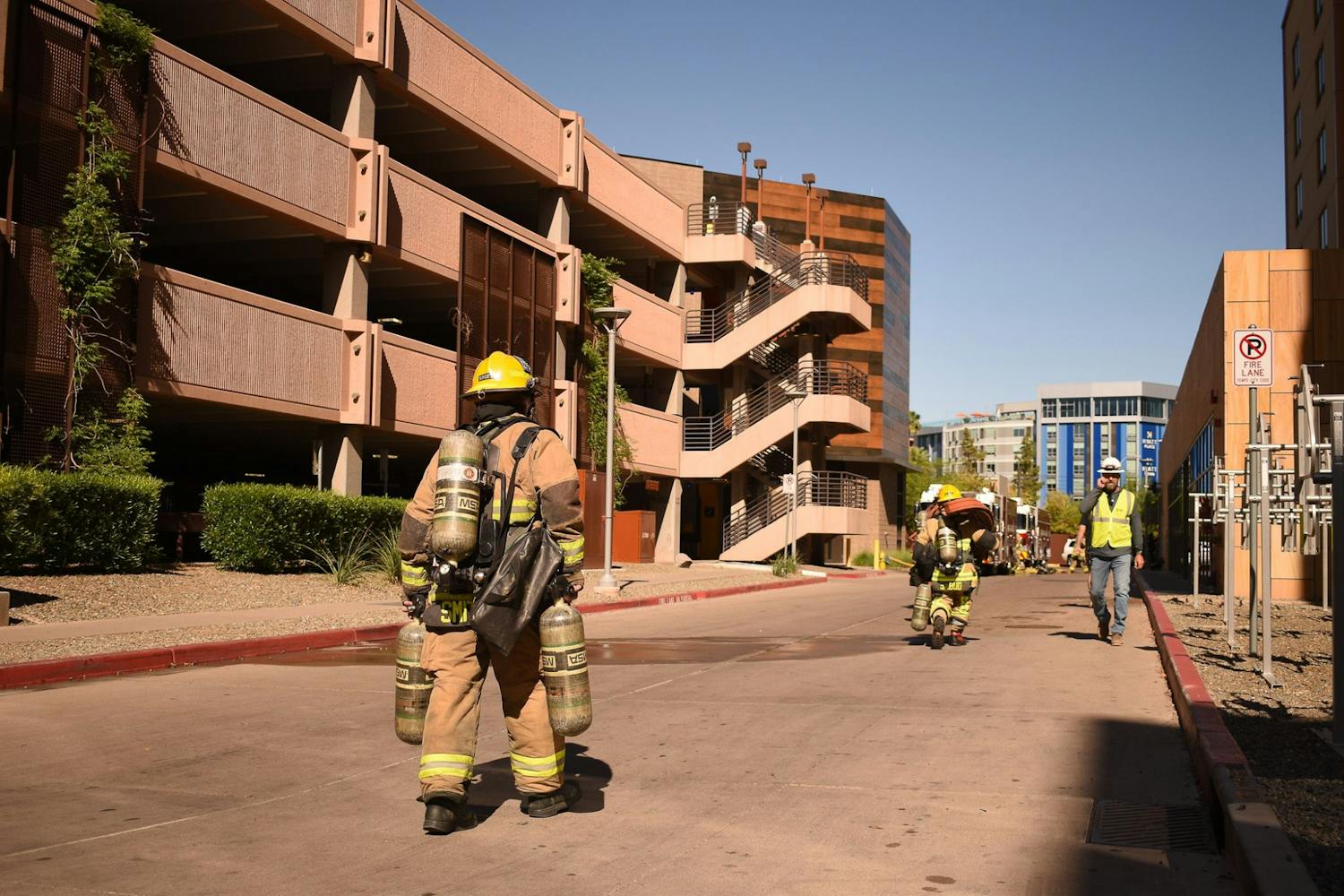When Raymond Gurley was 12 years old, he was walking home from middle school football practice when he got stopped, searched and escorted home by the police because he said they thought he dropped drugs on the street.
However, he said he has never done drugs a day in his life, and felt harassed by the police because of the color of his skin.
Now, Raymond, a junior studying journalism, is an ASU student who said he looks back on this experience of racial profiling with a positive outlook.
However, the incident is still hard to relive for Raymond. He said all he wanted to do was walk home from football practice, which he looked forward to every day because sports were supposed to be his escape from his problems.
“I was scared as hell, but even more confused that an officer would question me," he said. "At the time, I thought cops were supposed to help people, not accuse them.”
Robin Gurley, Raymond's mother, said that she was distraught after learning that the cops searched Raymond and walked him home.
“It was heartbreaking when the cops knocked on my door and asked me if he lived here," she said. "That’s my baby, of course he lives here.”
Kayla Gurley, Raymond's sister, said she was shocked that anybody would accuse her younger brother of drug possession.
“I didn’t believe him when he first told me what happened," she said. "That’s something I could never imagine would actually happen to him let alone at such a young age. He’s just such a good kid.”
Raymond Gurley said he would use sports to get away from the family issues that went on in the house and was upset that the run-in with the police disrupted his happiness.
“My family and I were evicted from our house and both my parents lost their jobs," he said. "After that my dad became very distant and abusive at times.”
Raymond said his neighbors were watching across the lawn in disbelief when the police escorted him to his house.
“From that day on, I knew my neighbors had my back," Raymond said. "I can honestly say that the community has grown stronger together because of that incident.”
He said even now he reflects on this experience because he learned from it.
“ASU has changed me in a lot of ways. I'm definitely more open to learning about new things going on, people’s history, experiences and things like that.”
Throughout this racial profiling incident and his college experience, Raymond said he has gained a stronger sense of self.
“Don't change who you are," he said. "Just understand that not everybody is going to appreciate who you are so you should be prepared to act accordingly.”
Raymond said that he thinks racial profiling dies down once college hits.
“I don't think there's racial profiling much on campus specifically. I think there's so many people from so many different backgrounds that everybody kind of just understands and appreciates that we're all different," he said.
"Arizona itself isn't the most welcoming of states, but I think (at) ASU specifically, I feel pretty welcomed and not judged or harassed.”
Raymond said if he had any type of advice to give to incoming freshmen it would be to rely on yourself first.
“For ASU students in general, I think they just got to understand that while most people are good at heart ... you always got to watch yourself and who you're around.”
Reach the reporter haileyhole@gmail.com and follow @haileyholee on Twitter.
Like State Press Sports on Facebook and follow @statepresssport on Twitter.




